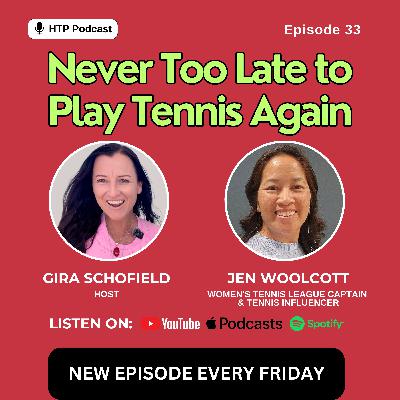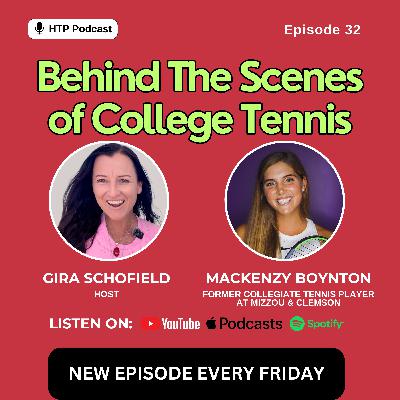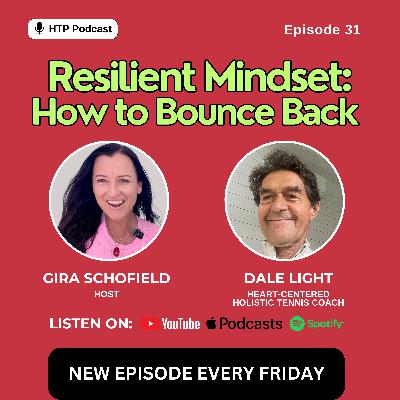
HTP Podcast
Author: Gira Schofield
Subscribed: 0Played: 1Description
🎙️ Welcome to the HTP Podcast, Holistic Tennis Performance — where we go beyond just strokes and strategy.
We dive into the real stories behind the players, coaches, and parents—how they started, what they’ve overcome, and how tennis shaped their lives both on and off the court.
We’ve moved beyond mental toughness tips (though you’ll still find plenty of those here!) to now spotlighting authentic, inspiring journeys from players and coaches across all levels.
From late starts and self-taught success to college scholarships and mindset breakthroughs, each episode offers powerful insights, personal growth, and a fresh take on what it means to truly play with heart.
Subscribe, tune in, and be inspired—because every tennis journey matters. 🎙️✨
Disclosure : The following episodes are for educational purposes and isn’t a replacement for professional care. If you’re experiencing mental or physical health issues, please consult a qualified healthcare provider.
























